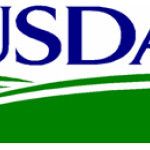- 行业: Government
- Number of terms: 41534
- Number of blossaries: 0
- Company Profile:
A special fund established by Congress under the Reclamation Act of 1902, as amended, for receipts from the sale of public lands and timber, proceeds from the Mineral Leasing Act, and certain other revenues. Congress appropriates money from this fund for the investigation, construction, operation, and administration of Bureau of Reclamation projects. Collections from water users for payments made on the reimbursable costs of the federal projects are also returned to the fund.
Industry:Agriculture
P.L. 57-161 (June 17, 1902), as amended, appropriated the receipts from the sale and disposal of public lands and resources in 17 western states to the construction of irrigation works for the reclamation of arid lands. Amendments made by the Reclamation Project Act of 1939 gave the Department of the Interior, among other things, the authority to amend repayment contracts and to extend repayment for not more than 40 years. Amendments made by the Reclamation Reform Act of 1982 (RRA) eliminated the residency requirement provisions of reclamation law, raised the acreage limitation on lands irrigated with water supplied by the Bureau of Reclamation, and established and required full-cost rates for land receiving water above the acreage limit.
Industry:Agriculture
The process of rehabilitating disturbed lands, or converting unproductive lands to productive uses. The term is also used for the process of recycling or reusing water. In the context of the Reclamation Act and reclamation law, it means putting arid lands to use through irrigation.
Industry:Agriculture
The Federal Food, Drug, and Cosmetic Act defines this term as "any food in its raw or natural state, including all fruits that are washed, colored, or otherwise treated in the unpeeled natural form prior to marketing." The nonregulatory definition generally means any agricultural commodity that has undergone little or no processing.
Industry:Agriculture
A family of large flightless birds that include ostriches, emus, and rheas, which U.S. farmers are beginning to domesticate and raise for food. Ratite inspection has become a policy issue because producers want USDA to include them under the mandatory meat and poultry inspection laws. If plants that slaughter and process these birds were under mandatory inspection, most of the cost would be covered by taxpayers. Currently, such plants must pay for USDA inspection on a fee-for-service basis, under a voluntary ratite inspection program instituted in 1995 under authority of the Agricultural Marketing Act of 1946.
Industry:Agriculture
Land on which the natural potential (climax) plant cover is principally native grasses, grasslike plants, and shrubs. It includes natural grasslands, savannahs, certain shrubs and grasslike lands, most deserts, tundra, alpine communities, coastal marshlands, and wet meadows. It also includes lands that are re-vegetated naturally or artificially and are managed like native vegetation. The United States has 399 million acres of non-federal rangeland, about 30% of all non-federal rural lands, according to the 1992 National Resources Inventory. The BLM manages approximately 167 million acres of federal rangelands, and the Forest Service manages approximately 95 million acres of federal rangelands.
Industry:Agriculture
Money collected from livestock grazing on federal lands and used for rangeland improvements. The Bureau of Land Management calls these funds Range Improvement Funds and uses them solely for labor, materials, and final survey and design of projects to improve rangelands. The Forest Service calls these funds Range Betterment Funds and uses them for planning and building rangeland improvements.
Industry:Agriculture
Are the only peanuts produced in the United States that are eligible for domestic edible use. Quota peanuts are not in excess of the effective farm poundage quota and are protected by a minimum federal price support of $610 per ton. Quota holders can place these peanuts under loan with the Commodity Credit Corporation and receive the quota support rate of $610 per ton, or sell the quota peanuts directly to the buyer (i.e. handler) for at price that is much higher than the price support rate.
Industry:Agriculture
A limit imposed by governments on the quantity of goods produced or purchased. Import quotas can be used to restrict the purchase of goods from foreign suppliers, while export quotas have been used to stabilize the export earnings of countries producing primary products by restricting supply, and thereby sustaining prices.
Industry:Agriculture
